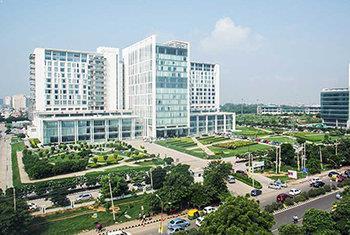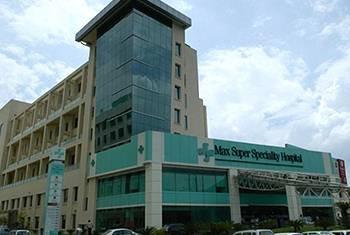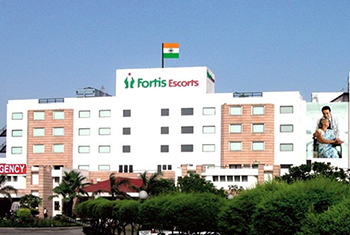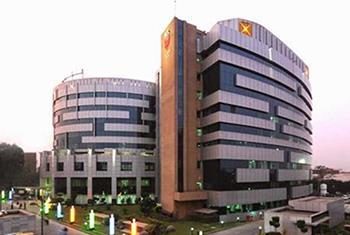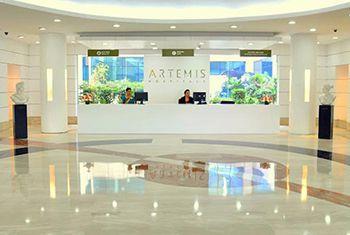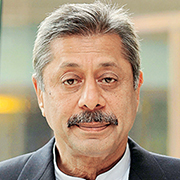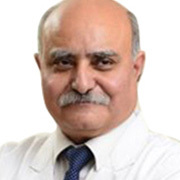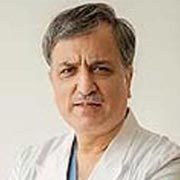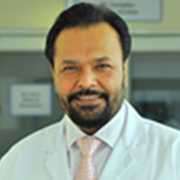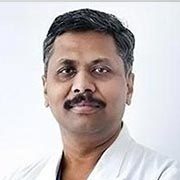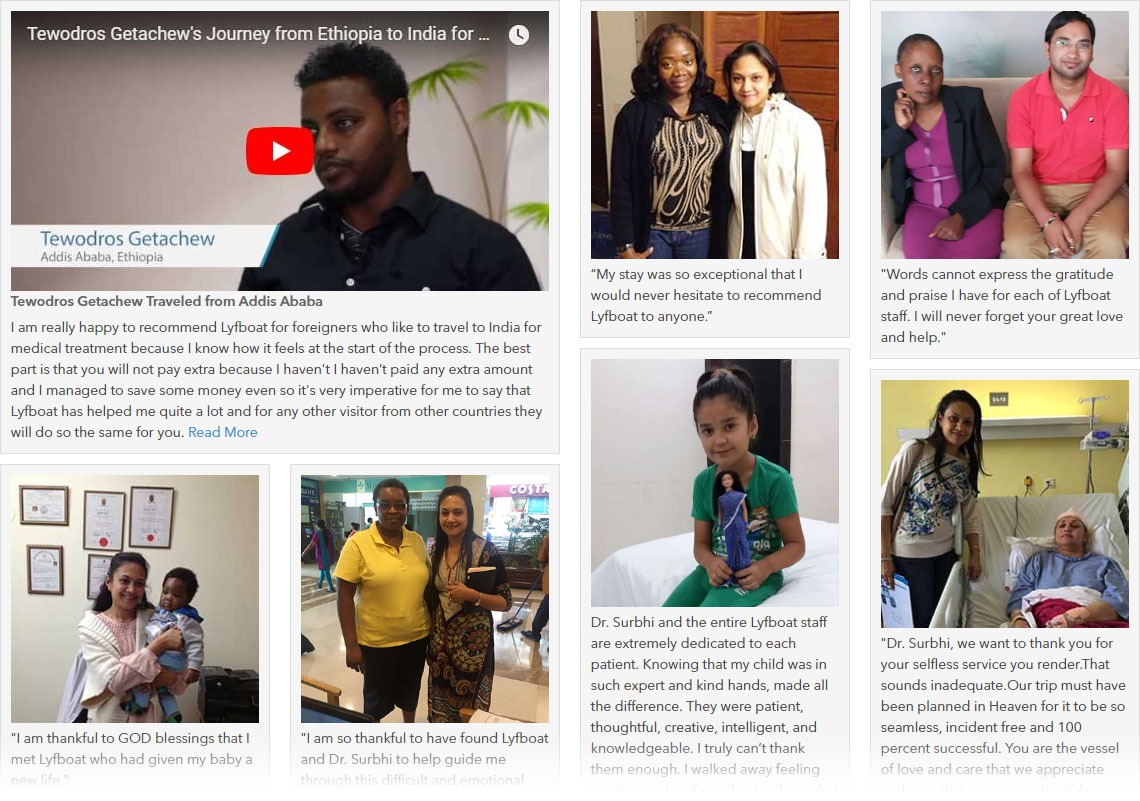- Bariatric Surgery
- Cardiology
- Transplants
- Neurology
- Oncology
- Bladder Cancer Treatment
- Bone Cancer Treatment
- Breast Cancer Treatment
- Colon Cancer Treatment
- Esophagus Cancer Treatment
- Kidney Cancer Treatment
- Leukemia Treatment
- Liver Cancer Treatment
- Lymphoma Treatment
- Lung Cancer Treatment
- Myeloma Treatment
- Prostate Cancer Treatment
- Pancreatic Cancer Treatment
- Ovarian Cancer Treatment
- Testicular Cancer Treatment
- Orthopedics
Heart Surgery Cost in India
The average cost of cardiac surgery in India starts from $3500.
The average cost of cardiac surgery in India starts from $3500. Heart surgery can help correct cardiac disorders. There are different types of heart surgery that help correct cardiac defects that cannot be treated with the help of any other surgery. Each type of heart surgery has its own purpose and a cardiac surgeon is the best person to assess which type of surgery is required by a patient as a part of cardiac treatment.
Factors Affecting the Cost of Heart Surgery in India
- Choice of the hospital is also a factor which determines the final cost. Hospitals with the world class amenities costs are bound to cost more than usual given their standard of services.
- The type of cardiac defect or condition that the patient is suffering from. This will help determine the type of heart surgery that the doctors must conduct to treat the patient.
- The duration of stay for your medical journey also needs to be taken into consideration before planning your total expenditure. While your stay in the hospital along with one companion will be included in the package, stay outside the hospital (at the hotel/guest house) will be additional, starting from $25/day.
- The type of room category determines the nursing and meal charges hence influencing the cost.
- Surgeon’s fees
- Anaesthesia cost
- Cost of additional tests or procedures
Get a Free Personalized quote for Cardiac Surgery in India
Trusted by Patients from 90+ countries
- Connect with 1000+ Specialists
Use the built in communication tools to ask as many questions as needed and get a prompt response. Patient Coordinators will assist you from start to finish.
- Connect with Hospitals around the globe
We hand pick each hospital & only internationally accredited hospitals are included to ensure you will receive high quality care.
- Unbeatable Quotes - Guaranteed
If you receive a lower quote for the same treatment, hospital and doctor, we guarantee we will beat that price.
- Free Medical Advice from Experts
Speak directly to doctors to have all your questions and concerns addressed before finalizing where to get your treatment.
What is Cardiac Surgery?
Heart surgery can help correct cardiac disorders. There are different types of heart surgery that help correct cardiac defects that cannot be treated with the help of any other surgery. Each type of heart surgery has its own purpose and a cardiac surgeon is the best person to assess which type of surgery is required by a patient as a part of cardiac treatment.
Heart surgery is a tedious, sensitive and risky procedure. However, the benefits associated with each type of heart surgery are many. Typically, the results of a heart surgery are highly positive and the patient is able to live a quality life after undergoing surgery to correct cardiac defects. Only an experienced cardiologist is able to decide which surgery needs to be conducted for the treatment of heart patients. There are risks and benefits associated with both traditional and minimally invasive surgery.
The cardiology hospitals in India are equipped with highly sophisticated and latest technology that help conduct these procedures with extreme accuracy and precision. The advancements made in the field of cardiac surgery and the research trials conducted by the top hospitals for heart surgery in India has made the country famous for offering top notch treatment facilities.
Cardiac surgery such as coronary artery bypass grafting (CABG), heart transplant, atrial septal defect (ASD) closure, ventral septal defect (VSD) closure, angioplasty, and angiography can be availed at the most reasonable cost in India.
Who needs to undergo Cardiac Surgery in India?
Heart surgery is required in case of patients suffering from the following conditions:
- Blocked coronary artery
- Heart failure
- Abnormal heart rhythms
- Damaged heart that requires replacement
- Damaged portions of heart that require repair
- Reduced heart function and performance warranting a need for medical device implantation
- Coronary heart disease (CHD)
- Damaged heart valve requiring replacement and repair
Cardiac surgery is also an option for patients suffering from heart damage, whose condition has not improved despite trying other treatment methods, including lifestyle changes, medical procedures and medicines.
What are the Types of Cardiac Surgery?
There are different types of heart surgery, one of which is selected by the cardiac surgeon based on the condition of the patient and the final diagnosis. Each of these surgeries has different benefits and they help treat different conditions. Before the surgery, the patient is informed about the pros and cons associated with the surgery, the risks involved and the amount of time that it will take for the patient to recover after the surgery. Some patients like to go for minimally-invasive surgery for aesthetic reasons, while others still prefer to go for traditional open heart surgery. Some of the common heart surgery procedures include:
- ASD Heart Port Surgery
- Coronary Angiography
- Coronary Angioplasty
- Coronary Artery Bypass Surgery (CABG)
- Ventricular Septal Defect (VSD) Closure
- Right Heart Catheterization
- Atrial Septal Defect (ASD) Closure
- Aortopulmonary Window
- Arteriovenous Fistula with Graft
- Bentall Procedure
- Automatic Implantable Cardioverter Defibrillator Implantation
These procedures have different functions. Some of these functions and the respective treatment are discussed below.
Coronary Artery Bypass Grafting (CABG)
This type of heart surgery is used to improve the flow of blood in patients suffering from CHD. Over a period of time, plaque build-up takes place in the arteries that supply blood to the heart. These plaques harden over a period of time and reduce the flow of blood in the heart, causing a peculiar chest pain called angina. Such plaques are also at an increased risk of rupture, leading to the formation of a blood clot that interferes with the flow of blood. This may result in heart attack. During CABG, a healthy artery is connected to the blocked artery, forming a new pathway for blood to flow into the heart. The blood, thus, “bypasses” the blocked portion of the artery and thus restores the normal flow of blood. During the procedure, several blockages can be bypassed at a time.
Atrial or Ventricular Septal Defect Closure
To achieve atrial or ventricular septal defect closure in the catheter is guided to reach the site of the defect and place a closure device there. The closure device is typically made of mesh and metal. The catheter is pulled out once the closure device is in its place. The closure device effectively closes the hole in the atrial or ventricular septa and is permanently place there.
Heart Valve Repair or Replacement
To achieve heart valve replacement or repair, the catheter is used to either place an inflated below or a clip that holds the valve in position and allows smooth flow of blood from one chamber to another. This, in turn, helps prevent mixing of pure and impure blood in the chambers.
Coronary Angioplasty
Also known as percutaneous coronary intervention (PCI), coronary angioplasty is a nonsurgical procedure used to open up the narrowed or blocked the coronary artery. It is performed with the help of a thin needle which places an inflated balloon in the blocked part of the artery. The inflated balloon opens up the blocked artery and improved blood flow. During the same procedure, a mesh tube called stent may also be placed to keep the blocked artery open and to support its inner wall.
Treatment of Faulty Valves, Septal Defects
Any fault or defects in the valves of the heart that control the flow of blood from one chamber of the heart and in the septa that divide the two atria or ventricles is treated with the help of a procedure called heart catheterization. Heart catheterization is a technique by which a thin and flexible tube called a catheter is inserted into a large artery in the arm, groyne or leg. The catheter carries a deflated balloon, which is inflated once inside to create a gap that allows the blood to flow normally or to place a clip that closed any holes in the walls.
Treatment of Heart Failure
For patients suffering from end-stage heart failure, heart transplantation is an option. During this procedure, the damaged or non-functional heart is replaced with a healthy heart derived from a donor. Until a suitable donor is registered, the patient is treated with the help of a total artificial heart (TAH) or ventricular assist devices (VAD).
Treatment of Arrhythmia
Arrhythmia refers to the irregular beating of the heart. The rhythm of the heartbeat is a patient suffering from arrhythmia is either too fast or too slow. It is a life-threatening condition that is treated by placing a medical device or an implant. However, the first line of treatment for arrhythmia includes medications. The second line of treatment is a surgery. It can be used to implant the following two devices to regularise the heart rate:
A pacemaker is a small device, which is connected to the chambers of the heart with the help of wires. The device itself is placed under the skin of the chest. This device sends electrical impulses, when required, to regularise the beating of the heart.
- Implantable Cardioverter Defibrillator (ICD)
It is another small device placed under the skin of the chest that sends strong impulses to the brain whenever it senses heart arrhythmia. The shock sent to the brain restores the normal beating of the heart.
How can Lyfboat assist you getting Heart Surgery in India?
World's Most Trusted Medical Advisory & Discount Platform
Lyfboat is a free advisory platform; we do not charge any fees from patients. In fact, we negotiate the price that Indian hospitals offer for Cardiac Surgery. In some cases we are able to reduce the cost of Cardiac Surgery by negotiating by upto 20% of what Hospitals generally offer. We advise the best treatment from the top hospital/surgeon at best price.
Preparation before Heart Surgery
The cardiac specialists will first conduct a thorough medical evaluation of the heart patient to figure out whether a heart surgery is required or not. However, this evaluation is not applicable in the case of emergency patients, who have has a major heart attack or stroke and may need an immediate heart surgery to ensure survival. Typically, the patient cardiac assessment before heart surgery is divided into two categories – general interview and diagnostic tests.
During the general interview, the doctor asks the patient about the medical history, family history of heart disease, past conditions, its symptoms and course of treatment, duration of symptoms, age and general health, including the presence of other medical conditions such as diabetes and hypertension. Patients may also be required to undergo certain blood and cholesterol tests at this stage.
Based on the findings of the general interview, the doctor may order a few diagnostic tests to assess the severity of heart damage and the kind of treatment required. Some of these diagnostic tests for heart problems include:
Stress Test:
Doctors diagnoses specific types of heart disease by making the heart pump at a faster rate. This is done as a part of a stress test, during which heart is made to work harder. During the test, an electrocardiogram is done and blood pressure is monitored, in addition to a few other parameters.Cardiac CT Scan:
This test let’s doctor take clear, coloured pictures of the heart with the help of an X-ray machine by injecting a special dye into the vein. It lets doctors diagnose whether there are any thickening in the coronary artery or if the patient is suffering from an aneurysm.Angiography:
A coronary angiography is used to look inside the coronary artery. This is done by inserting a catheter into the arm, neck or groyne and injecting a dye into the bloodstream, which flows through the coronary artery. The flow of dye along with the blood let’s doctor identify the normal flow of blood through the heart and check for any kind of blockages.Electrocardiogram (EKG):
This non-invasive test is used to measure the electrical activity of the heart. EKG lets doctors see the rhythm of the heart, whether the heart is beating in a regular or an irregular fashion. It also lets doctors record the electrical strength of the impulses as they travel through the heart.Cardiac MRI:
This test makes use of radio and magnetic waves to create live images of the beating heart on a computer. The computer shows images of beating heart and vessels carrying blood and is used to assess the function and size of the heart and its different parts.Echocardiography:
Echo is a painless and non-invasive procedure that makes use of sound waves to create take moving pictures of the heart as it beats. Echo checks for normal functioning of the heart muscles and valves, and also shows the size and shape of the heart on the screen. It lets doctors identify the areas of the heart that seems not working well, where there are less blood flow and areas of injury.Recovery After Heart Surgery
The patient undergoing heart surgery will be required to recover at the hospital and at home before he or she can return back to their normal daily routine. During the stay at the hospital. The patient may be given extra oxygen through a mask and put on intravenous fluids until the patient is able to drink by himself or herself. Recovery at home after a heart surgery may take a long time. A doctor guides patients to take care of their incision and check for any signs of infection at the site of the wound. Some patients may experience chest pain, muscle pain, constipation, mood swings, vomiting, depression, sleeping problems and loss in appetite after the surgery. However, these heart surgery side effects last for only a few days and the person is eventually able to return back to their normal activities.Frequently Asked Questions (FAQs) about Cardiac Surgery in India
Q. What is a minimally invasive cardiac surgery?
Minimally invasive cardiac surgery are advanced medical procedures in which the heart surgeon makes smaller incisions than those made during a traditional approach. This is a keyhole approach for the surgery and the surgeon does not open up the chest cavity completely to access the heart.
The minimally invasive procedures are considered to be safer and associated with a lower risk of complications in comparison to open-heart surgeries. One of the major benefit of this type of surgery is the shorter recovery period and hospital stay for the patient. Cardiac Hospitals in India offer many heart procedures including coronary arterial bypass heart surgery using a minimally invasive cardiac surgery procedure. This provides the advantage of reduced trauma to the body and less post-operative discomfort.
Q. I am diabetic. Can I still undergo minimally invasive cardiac surgery?
Yes, you can be an ideal candidate for minimally invasive cardiac surgery. This is because the infection rates and risk of bleeding are very less in case of minimally invasive surgery in comparison to traditional open surgery.
Q. How long will I need to stay in India after my heart surgery?
The length of stay varies depending on the type of surgery and condition for which the surgery was performed. Generally, a stay of two to three weeks in India is recommended so that you can heal properly and have follow-up visits to the doctor.
Q. What is the length of hospitalization after a cardiac surgery?
On average, the patients stays in the hospital for four to ten days after a heart surgery. This length varies on the basis of the surgery technique, healing speed and heart condition of the patient.
Q. Will I feel pain after the surgery?
During the procedure, the chest cavity is opened and stitched back. So, it is considered normal to have slight pain in the chest after a cardiac operation. The doctor prescribes pain medications to manage the pain and it gradually decreases over a period of time, usually a few months.
Q. When can I drive a car after my heart surgery?
It is advisable to wait for three to six weeks post-surgery before starting to drive on your own. This period of time is required for proper healing of your sternum (breast bone) that was cut open during the surgery. Any kind of stress or injury can damage the tissue if you begin driving too early. Talk to your doctor and surgical team before starting any activity after a heart surgery.
Q. What activities should I avoid after cardiac surgery?
According to the Society of Thoracic Surgeons (STS) guidelines, you should stop doing any activity immediately if it makes you feel short of breath, faint or dizzy, or you notice irregular heart beats or experience chest pain. Avoid lifting, pushing, or pulling anything that is heavier than 10 pounds (4.54 kg) for almost six weeks after the surgery. This is to prevent any strain on your sternum while it is still healing from the operation.
Best Heart Surgery Hospitals in India
Earlier in the best hospitals for cardiac surgery in India, heart damage was repaired with the help of an open-heart surgery. During this procedure, the wall of the chest is entirely opened to expose the patient’s breastbone, which is then cut to operate the heart. Before repairing the heart, the blood pumping function of the patient’s body is transferred to an artificial lung-heart machine temporarily.
However, research conducted by the best heart hospitals in India and advances in medical technology has now allowed cardiac surgeons to access the heart for repair without cutting away the breast bone. This minimally invasive heart surgery in India is done by making four to five small incisions between the ribs.
Only an experienced cardiac surgeon is able to decide which surgery needs to be conducted for the treatment of heart patients. There are risks and benefits associated with both traditional and minimally invasive surgery. The hospitals conduct both these types of procedures. These hospitals have associated themselves with some of the best cardiologists in the world, both from within India and abroad.
There are different types of heart surgery that help correct cardiac defects that cannot be treated with the help of any other surgery. Each type of heart surgery has its own purpose and a cardiac surgeon is the best person to assess which type of surgery is required by a patient as a part of cardiac treatment.
The cardiac surgeons in India also specialize in conducting both minimally invasive heart surgery and open heart surgery. They have a huge experience in resolving all types of medical conditions related to the heart, either surgically or medically.
List of top 15 cardiac surgeons in India:
Six Simple Steps
Our medical advisory platform automatically sends your medical query to our network of expert Doctors, working only at top internationally accredited Hospitals.
You and the medical providers communicate directly via email or your online patient account; our case managers are always available to help you with this.
You receive medical opinions and cost estimates within 24 to 48 hours via email and your online patient account.
Lyfboat empowers you to compare the medical opinions, and discuss the options with our very own doctors who help answer your questions, and guide you in making informed decisions on the best treatment option.
We negotiate your final costs, explore available discount offers, and we handle all your logistics including travel, accommodation, transport, and medical co-ordination.
Get cured, pay hospital after treatment and return home safe. Our care team is available throughout your journey to good health!

Verified By Dr. Surbhi Suden
Dr. Surbhi Suden is one of the founders of Lyfboat and a doctor with a renowned name in the Medical tourism industry. She has been working with international patients since 2008 and is a deeply committed professional with a long term vision of transforming the current healthcare scenarios.Cost Calculator

Top Specialities
- Best Doctors in India
- Best Bariatric Surgeons in India
- Best Bone Marrow Transplant Doctor in India
- Best Cardiologist in India
- Best ENT Doctor in India
- Best Epilepsy Doctors in India
- Best Gastroenterologist in India
- Best Hair Transplant Surgeon in India
- Best Hematologist in India
- Best Hip Replacement Surgeon in India
- Best Infertility Doctor in India
- Best Knee Replacement Surgeon in India
- Best Liver Transplant Surgeon in India
- Best Nephrologist in India
- Best Neurologist in India
- Best Neurosurgeon in India
- Best Oncologist in India
- Best Orthopedic Doctor in india
- Best Ophthalmologist in India
- Best Penile Implant Surgeon in India
- Best Penile Enlargement Doctor in India
- Best Plastic Surgeon in India
- Best Pulmonologist in India
- Best Rhinoplasty Surgeon in India
- Best Rhinoplasty Surgeon in Turkey
- Best Spine Surgeon in India
- Best Urologist in India
- Best Cardiologists in the World
Top Treatments
- Bone Marrow Transplant Cost in Turkey
- Gastric Band Cost Turkey
- Cochlear Implant Surgery Cost in India
- Cancer Treatment Cost in India
- Erectile Dysfunction Treatment Cost in India
- Hair Transplant Cost in India
- Laser Eye Surgery Cost in India
- Penile Implant Surgery Cost in India
- Penis Enlargement Surgery Cost in India
- Spine Surgery Cost In India
- 5000 Grafts Hair Transplant Cost Turkey
- Gastric Sleeve Surgery in Turkey
- Turkey Hair Transplant Package
- Liver Transplant in Turkey
- Penis Enlargement in Turkey
- Kidney Transplant Cost in Turkey
- Knee Replacement in Turkey
- IVF Cost in Turkey
- Proton Beam Therapy Cost in India
- LVAD Cost in India
- Pediatric Liver Transplant Cost in India
- Limb Lengthening Surgery Cost in Turkey
- 5000 Grafts Hair Transplant Cost Turkey
- 5000 Grafts Hair Transplant Cost
- Liver Transplant Success Rate in India
- Liver Cancer Treatment Cost
- Pancreatic Cancer Treatment Cost
- Prostate Cancer Treatment Cost
Best Hospitals for Top Treatments
- Best Blood Cancer Hospital in India
- Best Bone Cancer Hospital in India
- Best Bone Marrow Transplant Hospitals in India
- Best Breast Cancer Hospital in India
- Best Cancer Hospitals in India
- Best Hospital for Brain Tumor in India
- Best Hip Replacement Hospital in India
- Best Heart Hospital in India
- Best Kidney Transplant Hospital in India
- Best Knee Replacement Hospital in India
- Best Liver Cancer Hospital in India
- Best Liver Transplant Hospital in India
- Best Lung Cancer Hospital in India
- Best Neurology Hospital in India
- Best Orthopedic Hospital in India
- Best Spine Hospitals in India
- Best IVF Centre in India
- Best IVF Clinics in Turkey
- Best Hair Transplant Clinic in Turkey
- Best Prostate Cancer Hospital in India
- Best Hospital for Cyberknife Treatment in India
- Best Urology Hospital in India
- Best Hospitals for Pancreatic Cancer Treatment in India
- Best ENT Hospital in India
- Best Kidney Transplant Hospitals in Turkey
- Best Hematology Hospital in India
- Best Lymphoma Treatment Hospitals in India
Latest Articles
- Best Countries for Plastic Surgery
- Best Countries for IVF
- Best Countries for Hair Transplant
- Blood Cancer Treatment Cost
- Brain Tumor Surgery Cost
- Robotic Heart Surgery Cost
- Knee Replacement Surgery Cost
- Penis Enlargement Surgery Cost
- Penile Implant Surgery Cost
- Liver Transplant Cost
- Gastric Band Abroad
- Tummy Tuck Abroad
- Gamma Knife Surgery Cost
- Spinal Fusion Surgery Cost
- Gastric Sleeve Abroad
- Gastric Bypass Abroad
- Scoliosis Surgery Cost
- Heart Valve Replacement Surgery Cost
- Life Expectancy After Kidney Transplant
- Best Country for Rhinoplasty
- Bone Marrow Transplant Success Rate
- Bone Marrow Transplant Cost
- Best Countries for Breast Augmentation
- Heart Bypass Surgery Cost
- Best Country for Cancer Treatment
- Hip Replacement Surgery Cost
- Kidney Transplant Cost
- Breast Cancer Treatment Cost
Disclaimer: Lyfboat does not provide professional medical opinion on the treatment or diagnosis of a particular ailment. All the offered services and information presented on www.lyfboat.com are only for the purpose of public knowledge and cannot substitute the professional consultation of the physician. Lyfboat strongly advice against copying or cloning of its web content and follows the legal protocols for protection of its intellectual property.
© 2024 Lyfboat Technologies Pvt. Ltd. All Rights Reserved.
Please wait
